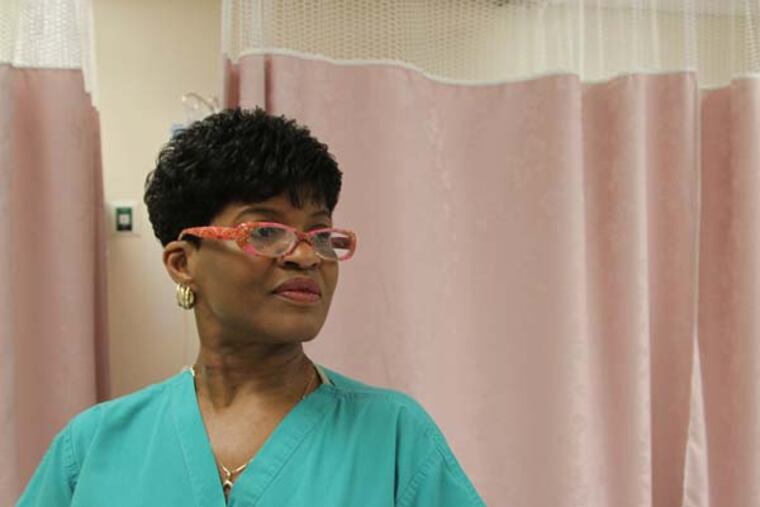A hospital waiting room, at turns horrific and touching
'The Line Starts Over There" reads a sign in Highland Hospital's emergency waiting room. This sort of shuffle is all too familiar for the mostly unemployed, uninsured patients who end up at the Oakland, Calif., facility. As one of its overworked physicians explains, the public service center is a place of last resort.

'The Line Starts Over There" reads a sign in Highland Hospital's emergency waiting room. This sort of shuffle is all too familiar for the mostly unemployed, uninsured patients who end up at the Oakland, Calif., facility. As one of its overworked physicians explains, the public service center is a place of last resort.
Peter Nicks' documentary The Waiting Room shines a light on the darkest corners of the American health-care system. Its patrons are poor, unemployed, uninsured, and sick - a worst-case scenario. But in giving his subjects the attention usually denied them, Nicks nets moments that are at turns horrific and touching, redemptive of those seeking treatment and the workers who provide it where no one else will.
At the high-traffic hospital, it's not a matter of who gets there first, but whose condition requires the most immediate attention. At one end of the spectrum is a carpet layer whose muscle spurs are preventing him from working. At the other is a 15-year-old gunshot victim. One will leave the hospital with an astronomical bill and a referral to a surgeon who may or may not recommend an operation, and the other will depart in a body bag.
The waiting room is ostensibly a hellish chamber where relief is sought and rarely received. "We're all going to die!" a frustrated patient hurls at the doctor treating him.
Nicks makes it his mission to hone in on the moments that make life worth living. He captures these in the relationships that exist inside and outside the waiting room. A nurse's cheerful banter makes everyone she comes in contact with smile. A doctor successfully pleads with a colleague to see a stroke victim who has been turned away everywhere else. A father breaks down at his daughter's bedside, apologetic that since having been laid off, he can't provide her with regular health care. She opens her mouth, afflicted with a tonsil infection, for the first time in the film to comfort him.
Nicks is an invisible presence in The Waiting Room. There are no voice-overs or asides, sermons or politics, à la Michael Moore. Nicks works in the Frederick Wiseman (Titicut Follies, State Legislature) vein, letting his subjects speak for themselves.
In doing so, he crafts a surprisingly watchable montage adhered by misfortune. In turning away from inconvenient realities, he suggests, we do so at the cost of recognizing human potential.